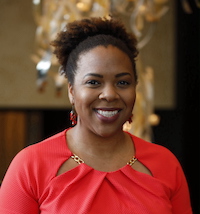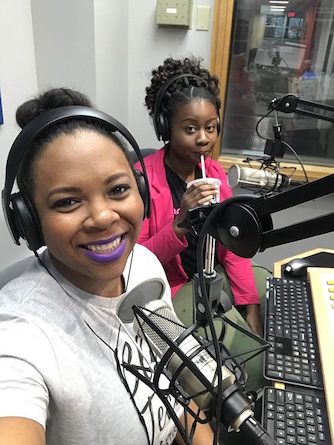
ASEE CDEI Scholar Spotlight Series: Jeremy Waisome
Jeremy Waisome, Ph.D, working towards improving mentored experiences for minoritized students

Dr. Jeremy A. Magruder Waisome
In this blog post, we will hear from Dr. Jeremy A. Magruder Waisome. Dr. Waisome is an Instructional Assistant Professor in the Department of Engineering Education at University of Florida where she conducts research on broadening participation in science, technology, engineering, mathematics, and computing (STEM+C). She is particularly interested in understanding how formalized mentoring programs impact student trajectories and self-efficacy. In her teaching, she utilizes the learner-centered approach to instruction. Dr. Waisome holds a bachelor’s and master’s of science degrees and Ph.D. in civil engineering from University of Florida.
At the end of this post, don’t miss out on the opportunity to connect with our scholar and learn more about the ASEE CDEI‘s efforts.
Scholar Interview
Q1: Can you tell us your story of belongingness?
I saw a Black female PhD in engineering for the first time during a field trip at Oak Ridge National Laboratory while attending a summer camp for middle school girls. I knew in that moment that I wanted to be her. I went home and told my Mom I wanted to get a PhD in engineering. And the rest, as they say, is history. When I think back to that experience I mostly remember being enamored by this incredible chemical engineer. I have hardly any recollection of the nuclear reactor facility I was standing in, or any of my teachers, or even the other camp kids (though I vividly remember eating the worst-tasting yogurt from cells I cultured in our chemistry lab, but I digress). This Black woman’s existence, and my mother’s willingness to affirm the visions of her precocious seventh-grade daughter, changed the trajectory of my life.
I attended an engineering, science, and technology magnet program in high school across town from where I grew up. The magnet program environment reminded me of my predominately white community. But beyond those classrooms, the student body was much more diverse. I was one of six black students in the program for my year (as a point of reference, my graduating class had nearly 1000 students). There was rarely a time when we were in the same classrooms together. Though I felt included in this community, I understood that it was a very different high school experience than most of the students who looked like me at this school were experiencing. This juxtaposition continued throughout all my education.
By the time I reached college, I was very self-aware. I went through an engineering summer bridge program that gave me community at my PWI. I was engaged in affinity organizations. I pursued student leadership and held positions at local, regional, and national levels. I became an advocate for other students like me. And when the occasional student scoffed at my admittance into the university, I tactfully dismantled their biases. It was not until I reached graduate school that I faced challenges of feeling like I did not belong. The level of isolation at times was unbearable. Thankfully, my mentors, family, and friends rallied around me and gave me the support I needed to successfully navigate the completion of my PhD.
Truthfully, my experience of being isolated in engineering only changed when I pursued a postdoctoral position in computer science, of all places. I was recruited into what I refer to as the, “Black Girl Magic Lab.” If you know, you know. Despite the role being in a new discipline conducting research I had never previously done, I felt at home. Never had I been so affirmed, understood, included, supported… It was the first time in my educational journey that I was not the only, or one of a few. I did not have to create my community to be in community. The community was actively being cultivated and supported.
Today, I find myself in a yet another discipline I did not formally study; one where the language is not even something I fully understand. However, I ascribe to the “bloom where planted” mentality. I have learned so much from my experiences through the years. My engineering education colleagues and colleagues from my campus community embrace me, my strengths, and my limitations. I am growing every day in my confidence in my ability to do this work. I choose to belong; therefore, I belong. And I’m firmly rooted in that choice. Hopefully, 7th grade me would be excited to see me thriving in my role as an engineering educator.
Q2: What is your understanding of Diversity, Equity, and Inclusion (DEI), and why is it important to what you do?

Dr. Jeremy Waisome and Dr. Kyla McMullen recording the Modern Figures Podcast
My parents did a great job exposing me to people from all over the world. We often hosted missionaries from across all walks of life in our home, sometimes for weeks at a time. I learned a lot about different cultures, foods, languages, and communities, seeing the world through their eyes. This is a part of who I am. If we are what we see, if we are a product of our surroundings/experiences, then there is great importance to broadening our exposure to different people, places, ideas, etc. We should invite everyone with an interest in a career in engineering to the proverbial table.
As someone who is actively working towards improving mentored experiences for minoritized students in engineering and computer science, DEI is integral to ensuring success. The changes we need to implement involve creating structural changes oftentimes to long-standing traditions in mentoring. One example that relates to me personally is that research advisors are not always our mentors. The expectation that our advisors be the sole support for personal and professional development is one that maintains hierarchical power dynamics that can feel daunting. I was introduced to the concept of critical mentoring last year by Dr. Idalis Villanueva and her mentorship and my understanding of related works shifted my beliefs around how to create more equitable mentor-mentee relationships and this is the direction my work is moving in today.
Q3: What are your current initiatives towards DEI work?
I am a member of our Associate Provost’s Diversity and Academic Inclusion Group, where we discuss and implement institutionalized change around curriculum and instruction. I work part-time with our graduate school, where I serve on the UF Aspire Alliance iChange Team – Aspire: The National Alliance for Inclusive & Diverse STEM Faculty. I serve as the advisor for the Gator NSBE Chapter. I am the co-host of Modern Figures Podcast, which seeks to elevate the voices of Black women in computing to inspire the next generation of the advanced technology workforce. And of course, I find great joy in mentoring students and my colleagues.
Q4: What do you see as the next steps for your DEI work?
My next steps will be working on more proposals that focus on infusing the principles of critical mentoring into engineering and computer science. It is an ever-evolving process for me because I am still learning the space. I appreciate that it incorporates critical theories into mentoring and focuses heavily on centering the voices of those being mentored. Applied to engineering, critical mentoring can provide better context for how we engage in mentoring relationships. My hope is that it will shift the tide for students from marginalized communities, allowing them to shape these experiences to make them more authentic and personal.
Q5: What recommendations do you have for engineering educators to start incorporating social justice in their classrooms?
I would encourage them to do the work! Read, listen, and engage with these topics before introducing them into the classroom. Learn what resources exist on your campus and/or in your community that you can share with your students. Connect with other scholars on your campus and beyond to develop modules/curriculum relevant to your discipline. And if it has not been mentioned yet, there is an abundance of resources right here within CDEI!
Q6: What resource can you recommend to people who want to learn more about DEI in your field?
Consider looking into podcasts related to your field by diverse voices. Podcasts are a powerful tool for storytelling and sometimes hearing the voices of others telling their story can have a profound impact on us. You can always listen to me on Modern Figures Podcast, but we also collaborated with the incomparable Dr. Yvette E. Pearson on Engineering Change Podcast to host three episodes entitled, “Engineering Change with Modern Figures.” We would love to have you take a listen!
Connect with our scholar:
- Website: https://www.jeremywaisome.com
- Twitter: @jeremywaisome
ASEE CDEI Communications Committee Volunteers
- Introduction, editor and webmaster: Sarah Lester, Cal Poly San Luis Obispo
- Editors: Susan Boerchers, Lafayette College; Tershia Pinder-Grover, University of Michigan, Homero Murzi (Twitter), Virginia Tech, and Elizabeth Litzler, University of Washington.
Getting involved with CDEI
- If you want to recommend someone for our Spotlight series click here.
- Check out website Highlights:
- Resources
- Past Blogs and Events
- Compilation of Newsletters and Reports
- Connect with the committee:
- Become a Friend of the Committee
- Follow us and tag us on Twitter
- Become a volunteer on our Communications Committee! We are always looking for people that want to share or improve their writing and leadership skills.
